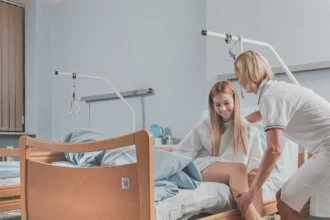Nursing home abuse is a distressing reality for many elderly residents and their families. It includes a range of harmful behaviors, from physical and emotional abuse to neglect and financial exploitation. Understanding the legal responses to such abuse is crucial for protecting the vulnerable and holding perpetrators accountable. This article explores the legal avenues available for addressing nursing home abuse, offering guidance and actionable information for those affected.
Identifying Nursing Home Abuse
Addressing nursing home abuse starts with recognizing its signs. Physical abuse may manifest as unexplained injuries, while emotional abuse can lead to changes in behavior. Neglect often becomes apparent through poor hygiene or unattended medical needs. Financial abuse might be detected through sudden changes in financial situations. Vigilance in monitoring the well-being of nursing home residents is key to early detection.
Reporting the Abuse
In the words of a Miami nursing home abuse lawyer, once abuse is suspected or identified, it should be reported immediately. This can be done through local law enforcement, adult protective services, or state regulatory agencies overseeing nursing homes. Reporting is not just a moral duty but often a legal requirement for certain professionals.
Investigation of the Abuse
Upon reporting, an investigation typically ensues. Authorities will gather evidence, interview witnesses, and review the nursing home’s records. The investigation aims to establish the facts of the case and determine the responsible parties. It’s a critical step in building a legal case against abusers.
Legal Avenues for Victims’ Justice: What You Need to Know
Nursing home abuse victims, or their families, can pursue justice through various legal avenues. Civil lawsuits can be filed against abusers and the nursing home for compensation. These lawsuits can seek damages for medical costs, suffering, and in some cases, punitive damages.
In this context, personal injury attorneys specializing in elder abuse can provide invaluable assistance. They can help navigate the legal system, file lawsuits, and represent victims in court. Their know-how is crucial in ensuring that victims’ rights are respected and that they obtain fair compensation.
Support for victims of nursing home abuse and their families is an essential component of the legal process. This can include counseling services, support groups, and resources for alternative care options. Legal teams often provide guidance on accessing these support services.
Top Challenges in Nursing Home Abuse Cases
Legal proceedings in cases of nursing home abuse can be problematic. Issues like the victim’s memory or health condition can complicate the case. However, experienced attorneys can navigate these issues effectively, using expert testimonies and other strategies to build a strong case.
In all stages of addressing nursing home abuse, documentation is crucial. Medical records, photographs of injuries, and written accounts of incidents all serve as vital evidence in legal proceedings. Keeping detailed records can significantly strengthen a case.
However, in cases where abuse constitutes a criminal act, such as assault or theft, criminal charges can be filed against the perpetrators. Prosecutors can bring charges that may result in fines, imprisonment, or both. Criminal proceedings serve both as a punishment and a deterrent against future abuse.
Regulatory Actions Against Nursing Homes
Regulatory agencies have the authority to take action against nursing homes found complicit in abuse. This can include fines, revocation of licenses, or other penalties. These actions ensure that nursing homes adhere to standards of care and are held accountable for failures.
The legal responses to nursing home abuse also involve preventive measures. This includes enacting and enforcing stricter regulations and standards for nursing homes. Training for staff on recognizing and preventing abuse is also crucial. Families should be aware of these standards when choosing a facility.
Moreover, raising awareness about nursing home abuse is vital for prevention and response. Public campaigns, educational programs, and advocacy by concerned groups play a significant role in highlighting the issue and prompting legal and policy changes.
The Path to Recovery from Nursing Home Abuse Should Begin Now
Nursing home abuse is a grave matter that mandates a robust legal response. Understanding the signs of abuse, knowing how to report it, and being aware of the legal avenues for justice are crucial for protecting the elderly. The role of attorneys, law enforcement, and regulatory agencies is pivotal in this process. While the legal journey can be complex, it is a necessary path to ensuring that justice is served and similar abuses are prevented in the future. As a society, it is our collective responsibility to safeguard the most vulnerable and ensure that nursing homes are safe havens of care and dignity.









